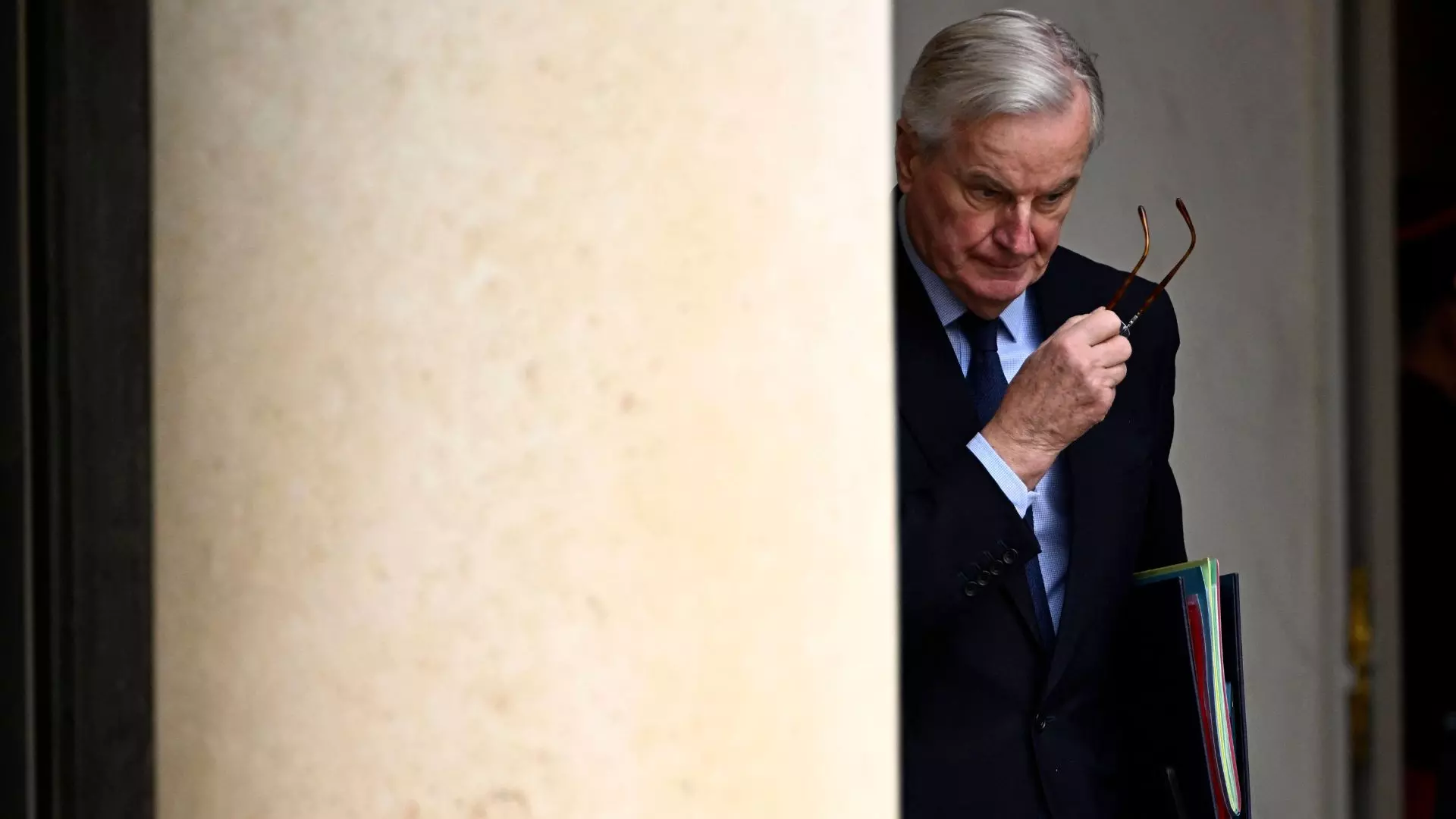Krishnan Srinivasan | Is France likely to implode next, as PM Barnier needs Le Pen to survive?

In the European Parliament elections this year, France’s far-right National Rally (RN) led by Marine le Pen did very well, as expected. In a knee-jerk reaction, President Emmanuel Macron, no longer the “Jupiterian” figure of an executive standing loftily above the fray, decided to call a snap parliamentary election, knowing that the budget deficit would be over six per cent of GDP, and he would be unable to implement any programme to make France more competitive through his immigration and pension reforms.
On July 7, the legislative election resulted in the success of the centre, left and extreme left in an opportunistic alliance in order to counter RN. The left-oriented parties comprising Greens, Socialists, Communists and the extreme left under Jean-Luc Mélenchon, proposed a Communist, Lucie Castets, aged 37, as Prime Minister. The appointment of a PM needs 289 votes to be endorsed, very difficult to achieve in a deeply fragmented Parliament. By threatening to vote down any Macron choice for leader of the government other than Castets, Mélenchon effectively handed the initiative to Le Pen.
After about 60 days without a government, Macron was obliged on September 5 to defer to Le Pen by appointing Michel Barnier, 73, a former four-time minister, from the Gaullist conservative Les Republicans (LR), which secured only 47 seats, counting on Barnier’s experience to bring people together. Barnier expected to secure 235 seats, with Macron’s coalition of 166, 47 LR votes, and a centrist catch-all group of 22, but short of the 289 needed. Le Pen’s RN was disappointed to come only third in the election, but proved nevertheless to be
critical to Barnier’s appointment, and because the Constitution does not permit Parliament’s dissolution for 12 months, Le Pen counts on another parliamentary election in June next year.
An obstacle for Le Pen’s own political aspirations is that she is implicated in a decade-old court case where she is accused of falsifying the number of her co-workers in the EP to take funds from the European Commission for herself and 24 colleagues on false pretences. The worst outcome for her could be a ban from taking public office for a minimum of five years. The hearings started October 1 and will take several weeks.
Also on October 1, Barnier outlined his policies. He aimed to make “dialogue and the culture of compromise a principle of government”. This is implicit criticism of Macron’s governing style, considered both unrealistic and condescending. He promises to resume a dialogue with Parliament early next year on assisted dying and palliative care, and wants consultations with the general public on a regular basis. Barnier declared his aim to reduce the deficit to five per cent of GDP next year and three per cent in 2029, with severe cuts from reduced spending. He cited a reduction in greenhouse gas emissions this year as evidence that France can be effective on environmental issues.
President Macron had passed legislation for a rise in retirement age to 64 from 62, despite opposition that led to widespread street protests. Barnier stated that he was open to talks with the unions over the pension system and reasonable tweaks to the pension law. He also increased from November 1 the minimum wage by two per cent, and promised stricter immigration policies.
As head of a minority government, Barnier faced a vote of no-confidence on October 8, which he overcame with the help of Le Pen’s RN, which then praised the Prime Minister’s readiness to consider the system of proportional representation.
There is now the obstacle of having his first budget for 2025 passed. His draft was presented on October 10, but the new finance and budget ministries had little time to frame the proposals and many are stated only in rough outline. The deficit-slashing budget is a major test of Barnier’ staying power; considering the adverse circumstances, his draft is a balancing act and it remains to be seen if the taxes and spending cuts will survive the parliamentary debate. Most likely, there will be significant amendments before the budget can be passed.
France’s budget debates have earlier triggered no-confidence motions and Barnier’s plans sparked opposition even before its details were known. “This is the most violent austerity plan that this country has ever seen,” said a far-left MP, “it will cause the French people to suffer”. Barnier, under pressure from the European Commission to bring deficits and growing debt under control, said it will improve France’s budgetary position by 60 billion euros, through spending cuts and tax increases on high earners and large companies. Most of the cuts focus on government spending, followed by social security and public healthcare. With France now paying a higher debt premium than Spain, and edging closer to the high-risk yields demanded of Italy and Greece, Barnier has little wriggle room. Le Pen has stated she would only support Barnier’s budget if he increases the purchasing power of French citizens.
If the Opposition parties together oppose the budget draft, the government has the option of forcing it through without a vote using a special procedure that deems a bill adopted if it is not rejected by a majority of MPs. But this paves the way to a second vote of no-confidence, putting Barnier’s survival again in the hands of Le Pen and her far-right politics. Macron has other options, none of them attractive; to reappoint the same Prime Minister, appoint a new Prime Minister, to resign (which he has previously ruled out) or call a referendum. Now as Germany seems to be politically imploding, France, the second-most important country in Europe, seems to be heading the same way.

